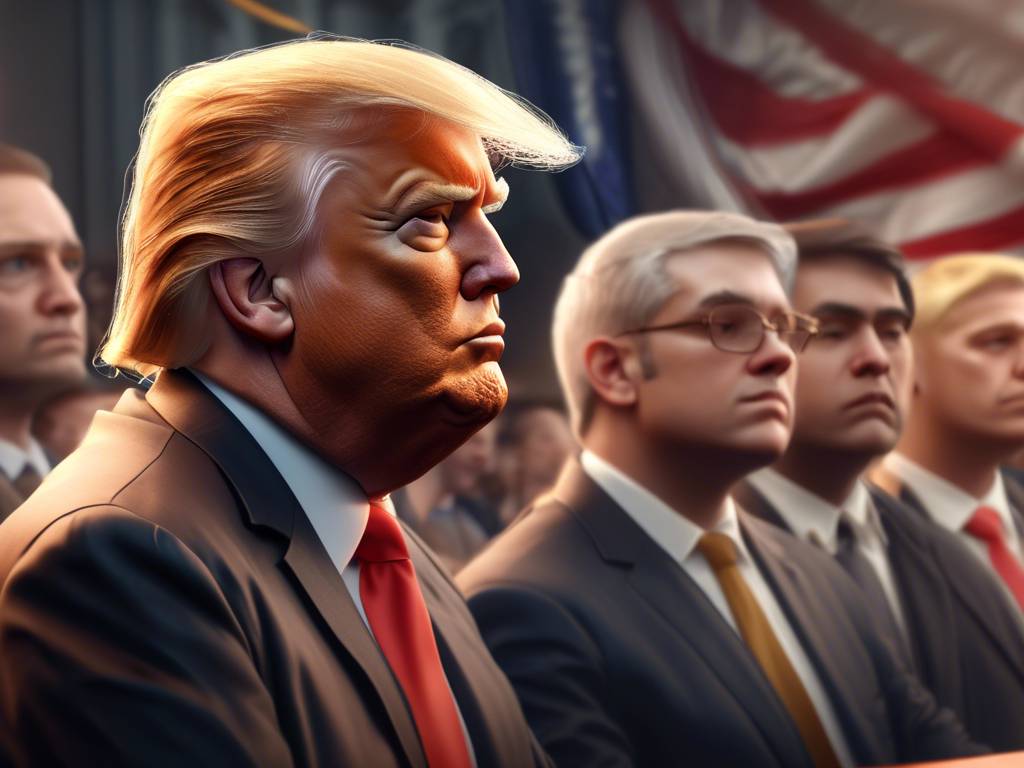Summary: Understanding the Final Stages of Trump’s Hush Money Trial
As the hush money trial involving former President Donald Trump enters its crucial final phase, ex-Trump lawyer Michael Cohen has returned to testify. The closing arguments were expected to take place soon, but have been postponed to next week, with both the defense and prosecution preparing for their final statements before the case goes to the jury. The jurors will be reminded to base their decision on facts, not personal biases or opinions, focusing on the purpose behind the transactions, which was to benefit Trump. Prosecutors are likely to emphasize the evidence pointing towards guilty verdicts when delivering their closing arguments.
Understanding the Importance of Closing Arguments in Trump’s Hush Money Trial
As a follower of cryptocurrency news, it is essential to grasp the significance of closing arguments in legal proceedings like Donald Trump’s hush money trial. The final statements made by both the defense and the prosecution play a critical role in shaping the jury’s decision and determining the outcome of the case. By understanding the key points that will be highlighted during these closing arguments, you can gain insight into the potential verdict and its implications for Trump and the individuals involved in the trial.
The Role of Closing Arguments in Legal Proceedings
- Closing arguments serve as the last opportunity for the defense and prosecution to present their case to the jury.
- They are used to summarize the evidence presented throughout the trial and highlight key points that support the respective side’s argument.
- Prosecutors often use closing arguments to reinforce the guilt of the defendant and convince jurors to return a guilty verdict.
- Defense attorneys, on the other hand, aim to raise doubts about the prosecution’s case and persuade the jury to acquit the defendant.
- The effectiveness of closing arguments can significantly influence the jury’s decision and determine the outcome of the trial.
Key Factors to Consider During Closing Arguments
- Focus on the purpose: Prosecutors are likely to highlight how the transactions in question were intended to benefit Trump, emphasizing their significance in the case.
- Evaluate the evidence: During closing arguments, both sides will analyze the evidence presented during the trial and interpret it to support their arguments.
- Consider the timing: The timing of the hush money payments, especially in relation to the election, will be a crucial point of discussion during closing arguments.
- Appeal to the jury: Lawyers often use emotional appeals, logical reasoning, and persuasive language in their closing arguments to sway the jury in their favor.
- Prepare for the verdict: Closing arguments can set the stage for the jury’s deliberation and eventual decision, making them a pivotal moment in the trial process.
Anticipating the Outcome of Trump’s Hush Money Trial
As the closing arguments approach in Donald Trump’s hush money trial, the outcome remains uncertain. The final statements made by the defense and prosecution will play a crucial role in shaping the jury’s decision and determining whether Trump will face legal consequences for his involvement in the payments. By analyzing the key factors discussed during closing arguments, you can prepare for the potential outcomes of the trial and understand the implications for the individuals involved.
Hot Take: Predicting the Impact of Closing Arguments on Trump’s Trial
Given the significance of closing arguments in legal proceedings, the final statements made in Donald Trump’s hush money trial will have a profound impact on the outcome of the case. As a follower of cryptocurrency news, it is crucial to pay close attention to the arguments presented by both sides during this critical phase of the trial. By understanding the key factors discussed during closing arguments and their implications for the verdict, you can gain valuable insights into the potential legal consequences for Trump and the outcome of the trial.





 By
By
 By
By
 By
By


 By
By